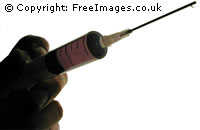Blood transfusions unlikely to spread cancer, finds study
Researchers from the European School of Oncology have concluded that blood transfusions from a patient with undiagnosed cancer are unlikely to spread cancer. Before donated blood can be used for transfusions, it must undergo rigorous tests to ensure that it is not carrying any diseases. However, whereas the risk of transmitting infectious agents is well understood, establishing whether or not chronic diseases such as cancer can be spread from donor to recipient has been more difficult. Even if a tumour is too small to be detected, it will shed millions of cells, which could, some believed, then pass to a blood recipient. A team of researchers led by Gustaf Edgren used transfusion and cancer diagnosis data from Sweden and Denmark to assess whether or not a link could be established. The team created a database and used this to identify individuals that had received donated blood from a person who was diagnosed with cancer less than five years after having given blood. The researchers identified 978 incidences of cancer among all blood recipients, but statistical analysis showed that those who received blood taken from someone who was later diagnosed with cancer were no more likely to then develop cancer than those who received blood from someone who remained cancer-free. The risk was not affected by gender, age or the number of transfusions received. Moreover, the team found no evidence of excess risk when patients received blood from people with those cancers thought to have the highest risk of metastasising through blood (cancers of the lung, liver, skeleton and central nervous system). The team also looked separately to see if people who received blood from donors with a known history of cancer were more likely to develop the disease. They found that the rate of cancer in recipients of blood from former cancer sufferers was not higher than that found among recipients of blood from donors with no history of cancer.
Countries
Denmark, Sweden



